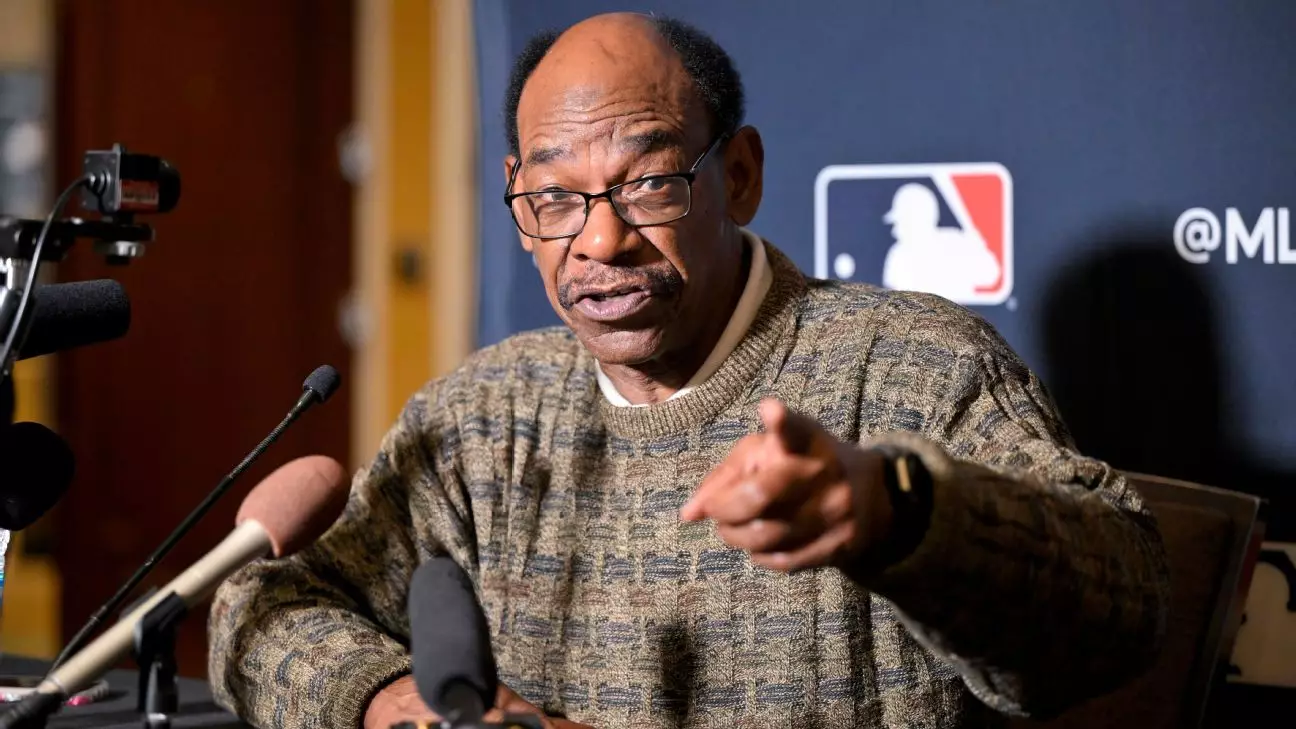Major League Baseball’s winter meetings have become a hallmark of the offseason—a crucial time for teams to strategize, negotiate player trades, and finalize free agent acquisitions. However, amid the whirlwind of trades and contract signings, one essential aspect often overlooked is the gathering of the managers from all thirty teams. This annual assembly serves as not just a meeting of minds, but a forum where managers can share insights, discuss rule changes, and reflect on their visions for the game. In the recent meetings held in Dallas, various managers articulated their thoughts on a range of topics, from gameplay changes to the impending challenges of the upcoming season.
The introduction of new rules in baseball has drawn mixed reactions from various stakeholders in the sport, and managers are no exception. Dave Martinez of the Washington Nationals expressed optimism about the current state of the game, noting that the evolution brought about by rule changes directionally benefits baseball, although he acknowledges that adaptation takes time. In contrast, Ron Washington, newly at the helm of the Los Angeles Angels, emphasized the need for patience among pitchers as they navigate the challenges posed by pitch clocks and physical limitations during gameplay.
Derek Shelton from the Pittsburgh Pirates proposed the idea of implementing a challenge mechanism within the strike zone. This thought echoes emerging discussions in the league about how technology could enhance the game’s fairness while simultaneously rekindling interest among fans. A.J. Hinch, the manager of the Detroit Tigers, spoke to the efforts made within the industry to refine these rules, highlighting a general absence of grievances regarding the adjustments. Bruce Bochy, representing the Texas Rangers, reinforced the notion that continual improvement is part of the managerial ethos, proclaiming that tinkering with the rules can be beneficial, provided there’s a clear boundary to avoid detracting from the integrity of the game.
As managers ventured into the topic of playoff formats, they showcased a mosaic of opinions. Brandon Hyde of the Baltimore Orioles hailed the move towards multiple wild-card game opportunities, considering it a progressive amendment that instills excitement in the postseason landscape. Meanwhile, Ron Washington cautioned that the situation requires careful monitoring: if division winners sit idle, they may lose competitive edge, as seen in previous playoff seasons.
The competitive integrity of playoff games remains paramount for several managers. Rocco Baldelli of the Minnesota Twins pointed to the positive impact of having more teams engaged in meaningful games leading to the postseason, while Matt Quatraro from the Kansas City Royals appreciated the high stakes that characterize the playoff race.
Inquiring more deeply into playoff challenges, Terry Francona—now with the Cincinnati Reds—voiced concerns about the prevalence of bullpen games, arguing that an over-reliance on bullpen strategy can cloud the landscape of true competitive prowess. He argued for the necessity of utilizing a full roster after a grueling 162-game season to determine the most genuine contenders for the championship.
When the focus shifted towards identifying formidable adversaries within the league, the responses were revealing. Managers expressed unequivocal respect for a host of players capable of altering the outcome of a game with their skills. Shohei Ohtani, Juan Soto, Aaron Judge, and Mookie Betts frequently surfaced in conversations, demonstrating their impact as game-changers. For instance, Shelton zeroed in on Soto’s ability to control the batter’s box, while Baldelli highlighted Judge’s imposing presence as a nightmare for opposing pitchers.
The responses showcased not only the respect managers have for individual players, but also an understanding of the nuanced strategies that successful teams often employ to navigate these star-studded threats. The camaraderie among managers and their shared recognition of talent contribute to a competitive spirit that elevates the overall quality of the sport.
Amidst discussions of gameplay and tactics, the significance of strong leadership from within the team also came to the fore. Managers like Shelton and Baldelli reflected on their peers’ management styles, underscoring the importance of adaptability and cultivated relationships. They recognized the ability of seasoned managers, such as Terry Francona and Kevin Cash, to inspire their teams effectively. The consensus among managers points to the idea that fostering a positive atmosphere and enabling players to perform to their full potential is crucial for any successful season.
As the winter meetings concluded, the dialogue among managers sparked not just anticipation for the upcoming MLB season but also poised them to navigate the ever-evolving landscape of baseball with renewed vigor and strategic insights. The combination of evolving rules, playoff formats, and individual prowess continues to be a prominent topic worthy of discussion, setting the tone for what promises to be an exciting season ahead.

